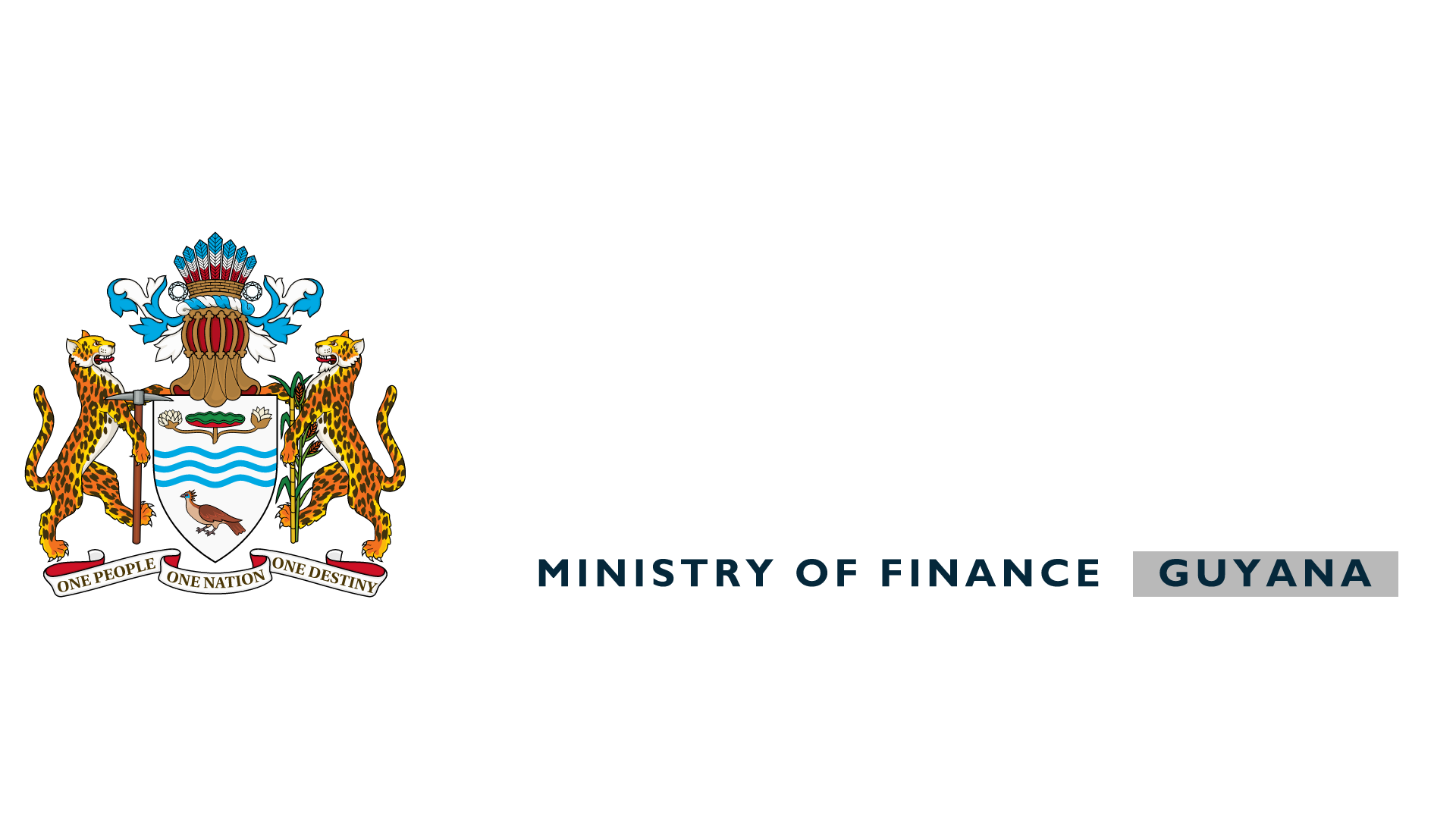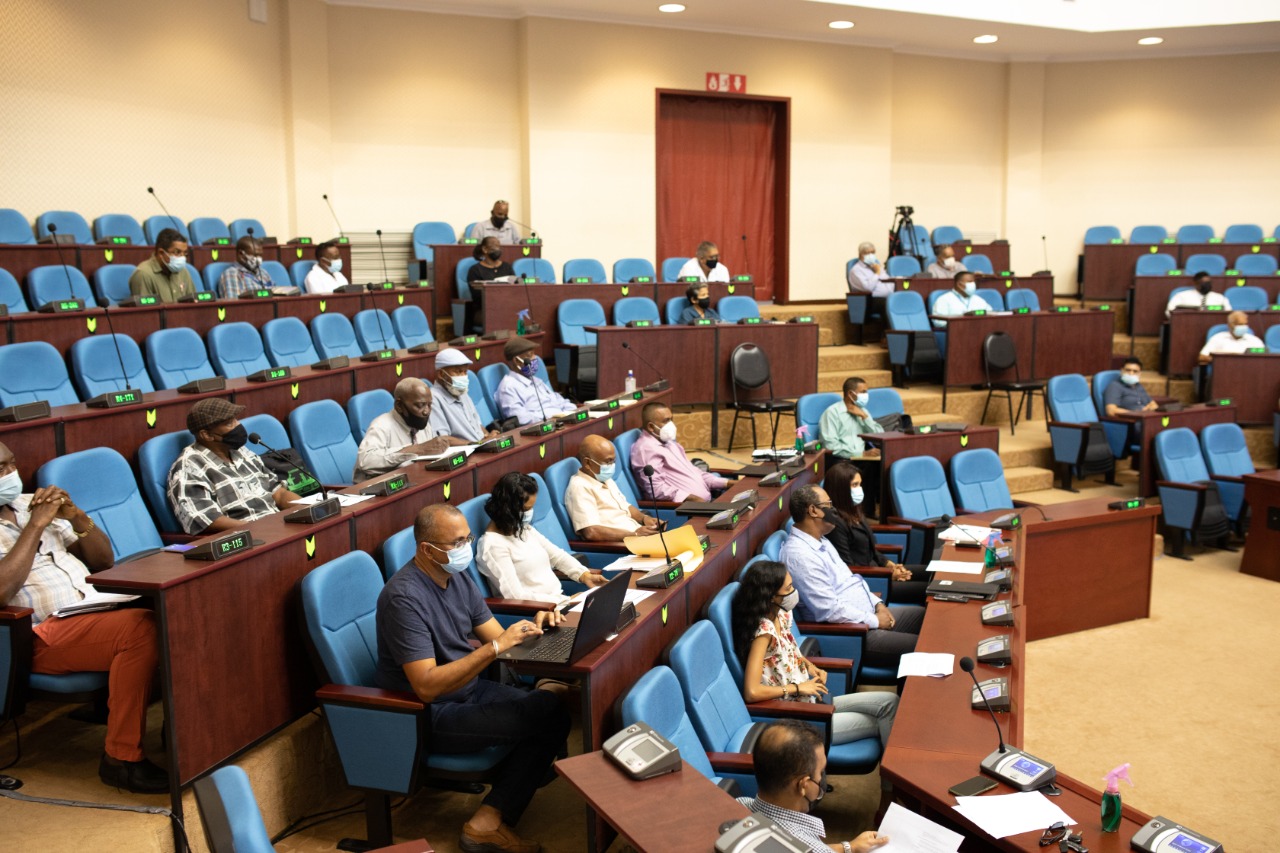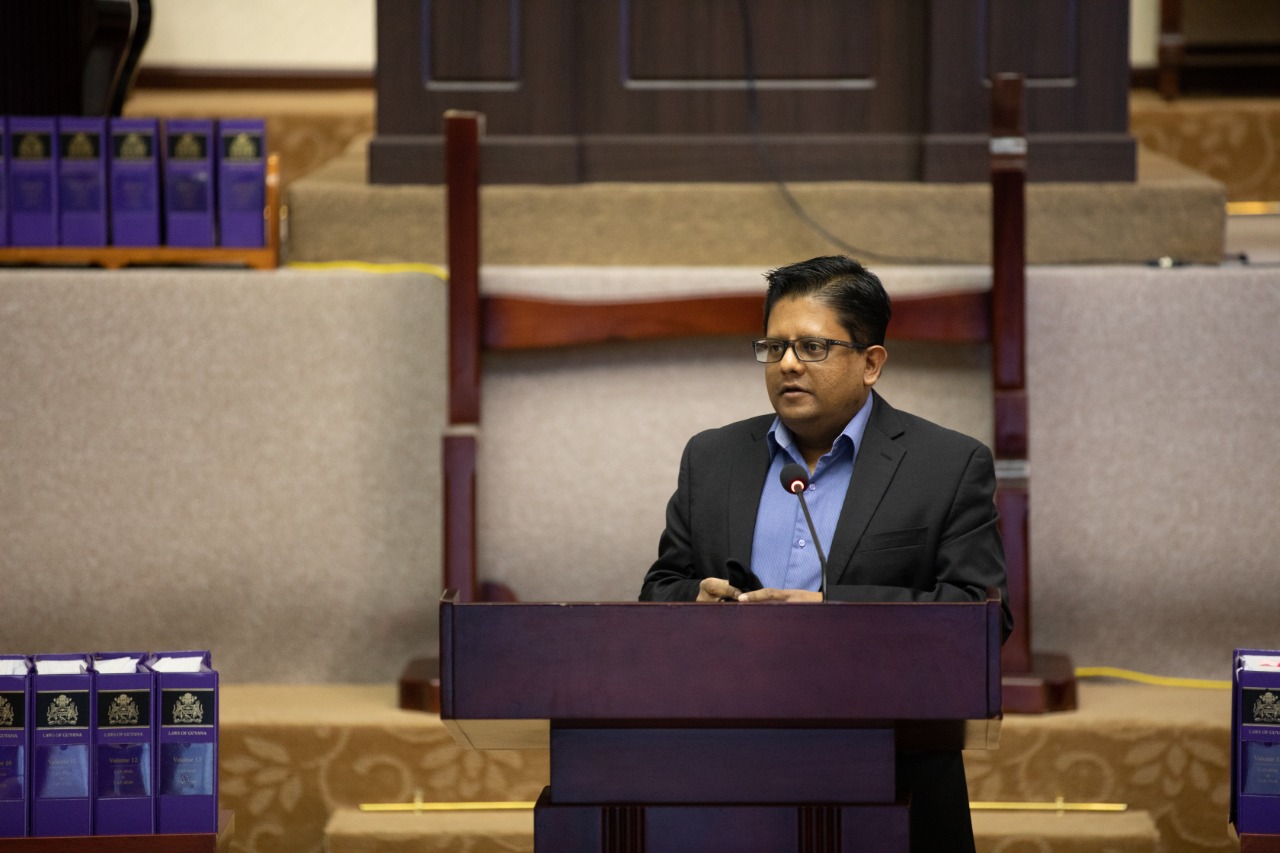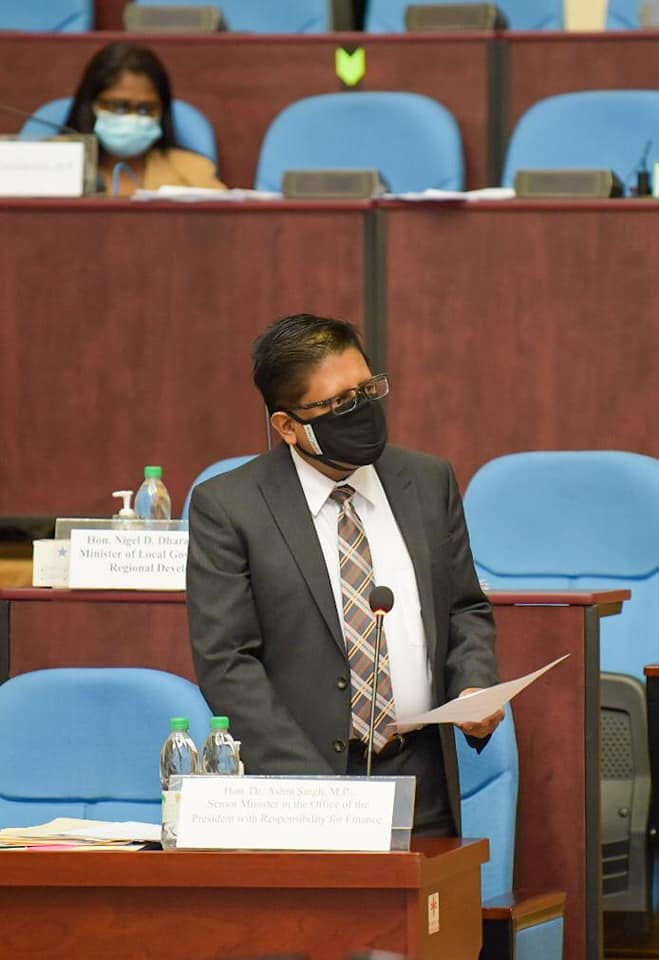Budget Speech 2021 – (File Size – 19.92 KB) Download
Budget 2021: Government consults with Private Sector and Labour
Emphasizes Government’s commitment to ongoing engagement
Georgetown, Ministry of Finance, February 6, 2021:
As work continues on preparation of the 2021 National Budget, Vice President Dr. Bharrat Jagdeo, Senior Minister in the Office of the President with responsibility for Finance Dr. Ashni Singh and Minister of Parliamentary Affairs, Gail Teixeira met with Private Sector and Labour representatives today at the Guyana International Conference Centre (GICC) where discussions were held on the main issues of interests to those stakeholders.
At the engagement, Vice-President Dr. Bharrat Jagdeo emphasized the Government’s commitment to deliver its manifesto promises, several of which have already been initiated in Budget 2020. He indicated that Budget 2021 and the budgets for subsequent years will continue to build on these.
Minister Singh emphasized that the Government’s approach to development is one of continuous engagement. He elaborated that the PPP/C Manifesto has outlined the vision for our country and the key interventions to be implemented, which includes significant investment in physical infrastructure to improve connectivity and unlock economic potential, substantial investment in social services including a well educated and skilled workforce to take advantage of the economic opportunities that are arising. He also added that it is important that the physical transformation is accompanied with improved delivery of quality services both at the level of the Government and the private sector.
Also addressing stakeholders and listening to their concerns and the issues faced by their sectors was Minister of Parliamentary Affairs and Governance Gail Teixeira, who emphasized the government’s consultative and inclusive approach to policymaking as illustrated by this and many other engagements.
The stakeholders present expressed strong appreciation of the opportunity to meet and discuss issues of interest, and advanced several recommendations to the government team for consideration.
Minister Singh thanked the stakeholders for the many valuable suggestions that were made, and noted that many of these suggestions were very closely aligned with priorities previously identified by government.
The meeting saw participation of a wide range of umbrella and sectoral representative bodies, including several from the small business sector.
Government to adjust Debt Ceilings
- Move would regularize inherited liabilities
- Strengthens fiscal management and positions Guyana for economic take-off
Georgetown, Guyana, January 28, 2021:
In a bid to regularize several issues unearthed after assuming office in 2020, as well as to facilitate new financing for a transformative development agenda, government has moved to increase the ceilings for domestic and external debt. Earlier today, the Honourable Dr. Ashni Singh, Senior Minister in the Office of the President with Responsibility for Finance, tabled two orders in Parliament proposing adjustments to the two ceilings. It was proposed that the domestic debt ceiling be increased to $500 billion, almost 3 decades after the last upward revision to $150 billion, in 1994. Additionally, a new external borrowing ceiling of $650 billion was proposed, three decades after its last increase to $400 billion.
The move to increase the domestic debt ceiling was influenced by several factors, one of which is the existence of a large Consolidated Fund overdraft at the Bank of Guyana, accumulated over the last 5 years. Government is now seeking to remedy this situation through the issuance of appropriate instruments. However, if the overdraft were to be addressed under the existing ceiling for domestic debt, a breach would result. In addition, government would require the issuance of new domestic instruments, in future, to finance various policy initiatives, and to stimulate development of the domestic financial market. Meanwhile, the move to increase the external debt ceiling is to accommodate the existing level of external debt contracted, plus anticipated new borrowing to fund government’s development agenda.
Importantly, these revisions to the external and domestic debt ceilings do not threaten Guyana’s long-term debt sustainability, given the substantial economic progress made since the early to mid-1990s (when the ceilings were last revised) and the country’s robust economic outlook. At the time of the last revision in 1991, Guyana’s external debt ceiling was set at more than 1,000 percent of GDP. In contrast, the new proposed external debt ceiling would amount to less than 60 percent of GDP, using the latest 2020 GDP estimates. On the domestic side, when last revised in 1994, Guyana’s domestic debt ceiling was set at almost 200 percent of GDP. In stark contrast, the revised domestic debt ceiling would amount to less than 50 percent of GDP. The above- mentioned comparisons clearly depict that Guyana’s current debt carrying capacity could safely accommodate the proposed ceiling increases.
In sum, this landmark move serves to regularize and accurately reflect significant liabilities accumulated over the last five years and harness Guyana’s debt-carrying capacity to finance government’s transformative development agenda. This latest move is consistent with the incumbent administration’s sterling track record of prudent debt management in the course of safeguarding Guyana’s long-term fiscal and debt sustainability.
Post BREXIT: Finance Minister tables Order in Parliament to give legal effect to CARIFORUM-UK EPA
Georgetown, Ministry of Finance, January 28, 2021:
As a result of Britain’s recent exit from the European Union (BREXIT), Senior Minister of Finance, Dr. Ashni Singh today tabled the Order to legally bring into effect the CARIFORUM- United Kingdom (UK) EPA and to ratify Guyana’s partnership with the UK.
Just prior to the conclusion of 2020 and immediately before BREXIT came intoforce, the Finance Minister had signed the Order while noting that access to the UK market would remain uninterrupted once the new CARIFORUM-UK pact was promulgated.
The Ministerial Order signed on December 30, 2020 sought to bring into effect as of January 1, 2021, the latter agreement to allow for continuity of the already existing preferential trading and investment relations for CARIFORUM states which trade with the UK.
Following the June 23, 2016 UK referendum to exit the EU and the concerns raised about the likely negative impact this would have on regional trade, CARIFORUM Ministers and the UK Government agreed to a roll over of the CARIFORUM-EU-EPA to take effect once the UK finally exited the EU. The roll over agreement resulted in the CARIFORUM-UK EPA and would allow for a seamless process to ensure uninterrupted market access and other EPA benefits for itself and for CARIFORUM in trade with the UK.
After he tabled the Order, Minister Singh reiterated that his government considers the United Kingdom a very highly valued trade and economic partner and for that reason places the highest importance on ensuring a seamless transition to the post-BREXIT dispensation in the interest of ensuring uninterrupted market access as well as continued and increasing levels of trade between the two countries. The Order is expected to come up for debate at the next sitting of the National Assembly.
Amendment to Fiscal Management and Accountability Act (FMAA) tabled by Finance Minister
Allows for streamlining of budget process for Constitutional Agencies
Ensures Parliament has comprehensive view of Budget in approval process
Georgetown, Ministry of Finance, January 28, 2021
An Amendment to the Fiscal Management and Accountability Act (FMAA) to ensure the streamlining of the budget process in relation to constitutional agencies was today tabled in the National Assembly by Senior Minister in the Office of the President with responsibility for Finance, Dr. Ashni Singh.
The critical piece of legislation cited as the Fiscal Management and Accountability (Amendment) Act 2021 seeks to amend the FMAA Chapter 73:02 to allow for the correction of a number of anomalies relating to the budget process applicable to constitutional agencies. According to the Finance Minister the amendment is necessary as it ‘seeks to streamline the Budget process particularly in relation to constitutional agencies while simultaneously ensuring the preservation of the independence of the agencies’.
Arising from the 2015 amendment to the FMAA by the A Partnership for National Unity/Alliance for Change (APNU/AFC), constitutional agencies’ budgets were required to be sent to the National assembly in advance of the submission of the rest of the National Budget. This two-stage process resulted in a fragmented and inefficient process for consideration of the National Budget and denied the Parliament an opportunity to view and consider the budget in a comprehensive manner.
The proposed amendment is important as well especially with Budget 2021 in its preparation mode and slated for presentation to the National Assembly in February, 2021.
Public Debt Annual Report 2018
Public Debt Annual Report 2017
Public-Debt-Annual-Report-2016
Public Debt Annual Report 2015
Privatization Policy Framework Paper
Privatization Policy Framework Paper – (File Size – 19.92 KB) Download
- « Previous Page
- 1
- …
- 14
- 15
- 16
- 17
- 18
- …
- 25
- Next Page »




